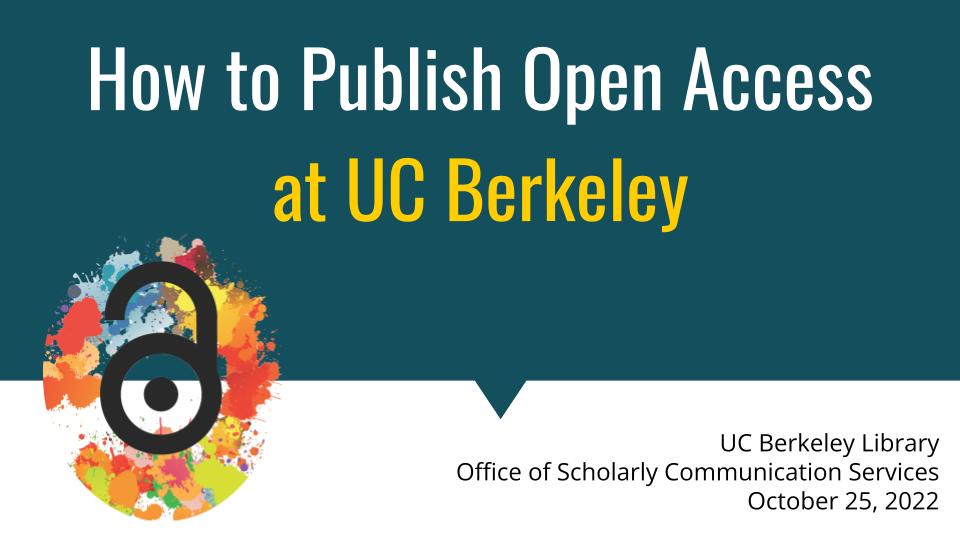Tag: copyright
The Bancroft Library’s San Francisco Examiner photograph archive
As part of the UC Berkeley University Library’s ongoing commitment to make all our collections easier to use, reuse, and publish from, we are excited to announce that we have just eliminated licensing hurdles for use of over 5 million photographs taken by San Francisco Examiner staff photographers in our Fang family San Francisco examiner photograph archive negative files, BANC PIC 2006.029–NEG, and Fang family San Francisco examiner photograph archive photographic print files, BANC PIC 2006.029–PIC.
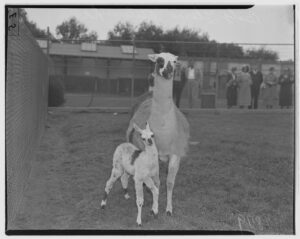
Every photograph within these photographic print and negative collections that were taken by an SF Examiner staff photographer are now licensed under a Creative Commons Attribution 4.0 license (CC BY 4.0). This means that anyone around the world can incorporate these photos into papers, projects, and productions—even commercial ones—without ever getting further permission or another license from us.
What is the San Francisco Examiner collection?
The SF Examiner has been published since 1863, and continues to be one of The City’s daily newspapers. It was acquired by George Hearst in 1880 and given to his son, William Randolph Hearst, in 1887. It was the founding cornerstone of the Hearst media empire, and remained part of the Hearst Corporation’s holdings until it was sold, in 2000, to the Fang family of San Francisco. In 2006 the Examiner’s photo morgue, totaling over 5 million individual images, was donated to The Bancroft Library by the Fang family’s successors, the SF Newspaper Company, LLC.
Along with the gift of negatives and photographic prints, the copyright to all photographs taken by SF Examiner staff photographers was transferred to the UC Regents, to be managed by UC Berkeley Library. However, the copyright to works (mainly in the form of photographic prints) that appear in the collection that were not created by SF Examiner staff was not part of the copyright transfer to the University. Copyright to any works not taken by SF Examiner staff is presumed to rest with the originating agency or photographer. The Library maintains a list of known SF Examiner staff photographers and can assist in making identification of particular photographs until the metadata has been updated.
What has changed about the collection?
Although people did not previously need the UC Regents’ permission (sometimes called a “license”) to make fair uses of our SF Examiner photograph archive, because of the progressive permissions policy we created, prior to January 2024 people did need a license to reuse these works if their intended use exceeded fair use. As a result, hundreds of book publishers, journals, and film-makers sought licenses from the Library each year to publish our Examiner photos.
The UC Berkeley Library recognized this as an unnecessary barrier for research and scholarship, and has now exercised its authority on behalf of the UC Regents to freely license the SF Examiner photographs in our collection that were taken by staff photographers under a Creative Commons Attribution 4.0 license (CC BY 4.0). This license is designed for maximum dissemination and use of the materials.
How to use SF Examiner collection photographs
Now that the photographs by SF Examiner staff photographers have a CC BY license applied to them, no additional permission or license from the UC Regents or anyone else is needed to use these works, even if you are using the work for commercial purposes. No fees will be charged, and no additional paperwork is necessary from us for you to proceed with your use.
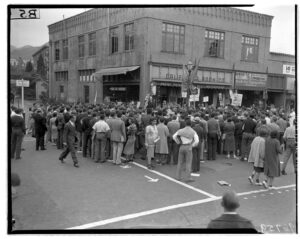
Making your usage even easier is the fact that over 22,000 of these negative strips have been digitized and made available via the Library’s Digital Collections Site, and the finding aid for the prints and negatives have more information about the photographs that have not yet been digitized.
The CC BY license does require attribution to the copyright owner, which in this case is the UC Regents. Researchers are asked to attribute use of reproductions subject to this policy as follows, or in accordance with discipline-specific standards:
Fang family San Francisco Examiner photograph archive, © The Regents of the University of California, The Bancroft Library, University of California, Berkeley. This work is made available under a Creative Commons Attribution 4.0 license.
One final note on usage: While the SF Examiner Collection now carries a CC BY license, this does not mean that other federal or state laws or contractual agreements do not apply to their use and distribution. For instance, there may be sensitive material protected by privacy laws, or intended uses that might fall under state rights of publicity. It is the researcher’s responsibility to assess permissible uses under all other laws and conditions. Please see our Permissions Policy for more information.
Other Library collections with a CC BY license
The Fang family San Francisco Examiner photograph archive joins a number of other collections that the Library has opened under a CC BY license, including the photo morgue of the San Francisco News-Call Bulletin. All of the collections that have had a CC BY license applied can be found on our Easy to Use Collections page.
Happy researching!
UC Berkeley Library to Copyright Office: Protect fair uses in AI training for research and education
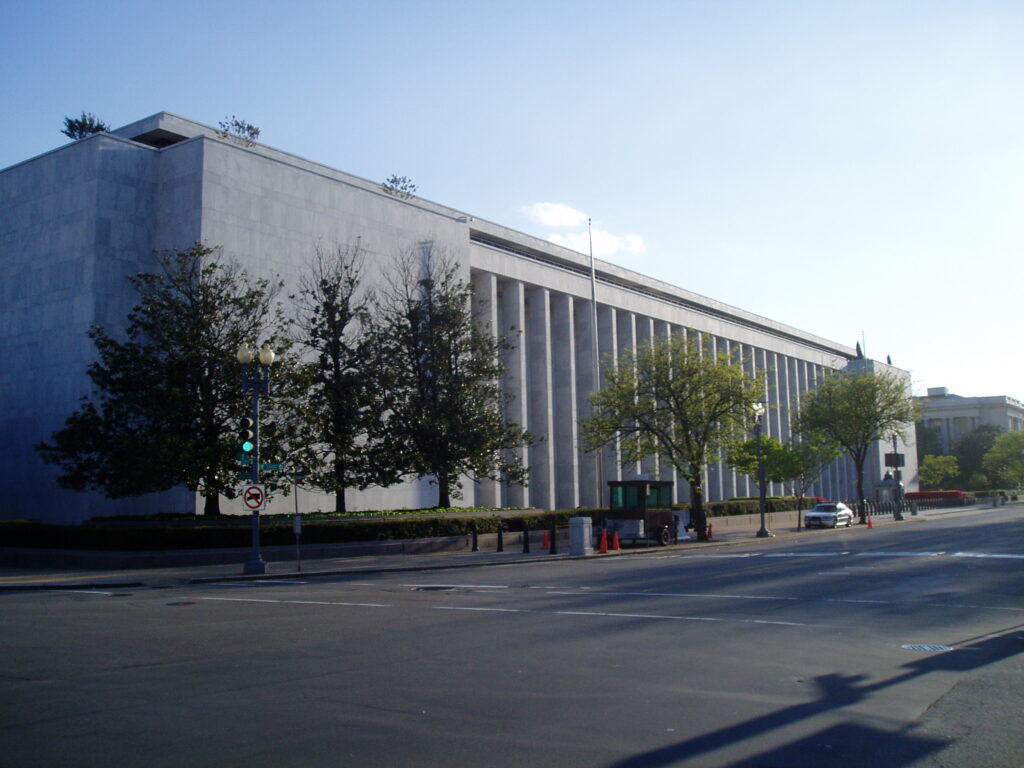
We are pleased to share the UC Berkeley Library’s response to the U.S. Copyright Office’s Notice of Inquiry regarding artificial intelligence and copyright. Our response addresses the essential fair use right relied upon by UC Berkeley scholars in undertaking groundbreaking research, and the need to preserve access to the underlying copyright-protected content so that scholars using AI systems can conduct research inquiries.
In this blog post, we explain what the Copyright Office is studying, and why it was important for the Library to make scholars’ voices heard.
What the Copyright Office is studying and why
Loosely speaking, the Copyright Office wants to understand how to set policy for copyright issues raised by artificial intelligence (“AI”) systems.
Over the last year, AI systems and the rapid growth of their capabilities have attracted significant attention. One type of AI, referred to as “generative AI”, is capable of producing outputs such as text, images, video, or audio (including emulating a human voice) that would be considered copyrightable if created by a human author. These systems include, for instance, the chatbot ChatGPT, and text-to-image generators like DALL·E, Midjourney, and Stable Diffusion. A user can prompt ChatGPT to write a short story that features a duck and a frog who are best friends, or prompt DALL·E to create an abstract image in the style of a Jackson Pollock painting. Generative AI systems are relevant to and impact many educational activities on a campus like UC Berkeley, but (at least to date) have not been the key facilitator of campus research methodologies.
Instead, in the context of research, scholars have been relying on AI systems to support a set of research methodologies referred to as “text and data mining” (or TDM). TDM utilizes computational tools, algorithms, and automated techniques to extract revelatory information from large sets of unstructured or thinly-structured digital content. Imagine you have a book like “Pride and Prejudice.” There are nearly infinite volumes of information stored inside that book, depending on your scholarly inquiry, such as how many female vs. male characters there are, what types of words the female characters use as opposed to the male characters, what types of behaviors the female characters display relative to the males, etc. TDM allows researchers to identify and analyze patterns, trends, and relationships across volumes of data that would otherwise be impossible to sift through on a close examination of one book or item at a time.
Not all TDM research methodologies necessitate the usage of AI systems to extract this information. For instance, as in the “Pride and Prejudice” example above, sometimes TDM can be performed by developing algorithms to detect the frequency of certain words within a corpus, or to parse sentiments based on the proximity of various words to each other. In other cases, though, scholars must employ machine learning techniques to train AI models before the models can make a variety of assessments.
Here is an illustration of the distinction: Imagine a scholar wishes to assess the prevalence with which 20th century fiction authors write about notions of happiness. The scholar likely would compile a corpus of thousands or tens of thousands of works of fiction, and then run a search algorithm across the corpus to detect the occurrence or frequency of words like “happiness,” “joy,” “mirth,” “contentment,” and synonyms and variations thereof. But if a scholar instead wanted to establish the presence of fictional characters who embody or display characteristics of being happy, the scholar would need to employ discriminative modeling (a classification and regression technique) that can train AI to recognize the appearance of happiness by looking for recurring indicia of character psychology, behavior, attitude, conversational tone, demeanor, appearance, and more. This is not using a generative AI system to create new outputs, but rather training a non-generative AI system to predict or detect existing content. And to undertake this type of non-generative AI training, a scholar would need to use a large volume of often copyright-protected works.
The Copyright Office is studying both of these kinds of AI systems—that is, both generative AI and non-generative AI. They are asking a variety of questions in response to having been contacted by stakeholders across sectors and industries with diverse views about how AI systems should be regulated. Some of the concerns expressed by stakeholders include:
- Who is the “author” of generative AI outputs?
- Should people whose voices or images are used to train generative AI systems have a say in how their voices or images are used?
- Should the creator of an AI system (whether generative or non-generative) need permission from copyright holders to use copyright-protected materials in training the AI to predict and detect things?
- Should copyright owners get to opt out of having their content used to train AI? Should ethics be considered within copyright regulation?
Several of these questions are already the subject of pending litigation. While these questions are being explored by the courts, the Copyright Office wants to understand the entire landscape better as it considers what kinds of AI copyright regulations to enact.
The copyright law and policy landscape underpinning the use of AI models is complex, and whatever regulatory decisions that the Copyright Office makes will bear ramifications for global enterprise, innovation, and trade. The Copyright Office’s inquiry thus raises significant and timely legal questions, many of which we are only beginning to understand.
For these reasons, the Library has taken a cautious and narrow approach in its response to the inquiry: we address only two key principles known about fair use and licensing, as these issues bear upon the nonprofit education, research, and scholarship undertaken by scholars who rely on (typically non-generative) AI models. In brief, the Library wants to ensure that (1) scholars’ voices, and that of the academic libraries who support them, are heard to preserve fair use in training AI, and that (2) copyright-protected content remains available for AI training to support nonprofit education and research.
Why the study matters for fair use
Previous court cases like Authors Guild v. HathiTrust, Authors Guild v. Google, and A.V. ex rel. Vanderhye v. iParadigms have addressed fair use in the context of TDM and determined that the reproduction of copyrighted works to create and text mine a collection of copyright-protected works is a fair use. These cases further hold that making derived data, results, abstractions, metadata, or analysis from the copyright-protected corpus available to the public is also fair use, as long as the research methodologies or data distribution processes do not re-express the underlying works to the public in a way that could supplant the market for the originals. Performing all of this work is essential for TDM-reliant research studies.
For the same reasons that the TDM process is fair use of copyrighted works, the training of AI tools to do that TDM should also be fair use, in large part because training does not reproduce or communicate the underlying copyrighted works to the public. Here, there is an important distinction to make between training inputs and outputs, in that the overall fair use of generative AI outputs cannot always be predicted in advance: The mechanics of generative models’ operations suggest that there are limited instances in which generative AI outputs could indeed be substantially similar to (and potentially infringing of) the underlying works used for training; this substantial similarity is possible typically only when a training corpus is rife with numerous copies of the same work. However, the training of AI models by using copyright-protected inputs falls squarely within what courts have determined to be a transformative fair use, especially when that training is for nonprofit educational or research purposes. And it is essential to protect the fair use rights of scholars and researchers to make these uses of copyright-protected works when training AI.
Further, were these fair use rights overridden by limiting AI training access to only “safe” materials (like public domain works or works for which training permission has been granted via license), this would exacerbate bias in the nature of research questions able to be studied and the methodologies available to study them, and amplify the views of an unrepresentative set of creators given the limited types of materials available with which to conduct the studies.
Why access to AI training content should be preserved
For the same reasons, it is important that scholars’ ability to access the underlying content to conduct AI training be preserved. The fair use provision of the Copyright Act does not afford copyright owners a right to opt out of allowing other people to use their works for good reason: if content creators were able to opt out, the provision for fair use would be undermined, and little content would be available to build upon for the advancement of science and the useful arts. Accordingly, to the extent that the Copyright Office is considering creating a regulatory right for creators to opt out of having their works included in AI training, it is paramount that such opt-out provision not be extended to any AI training or activities that constitute fair use, particularly in the nonprofit educational and research contexts.
AI training opt-outs would be a particular threat for research and education because fair use in these contexts is already becoming an out-of-reach luxury even for the wealthiest institutions. Academic libraries are forced to pay significant sums each year to try to preserve fair use rights for campus scholars through the database and electronic content license agreements that libraries sign. In the U.S., the prospect of “contractual override” means that, although fair use is statutorily provided for, private parties (like publishers) may “contract around” fair use by requiring libraries to negotiate for otherwise lawful activities (such as conducting TDM or training AI for research), and often to pay additional fees for the right to conduct these lawful activities on top of the cost of licensing the content, itself. When such costs are beyond institutional reach, the publisher or vendor may then offer similar contractual terms directly to research teams, who may feel obliged to agree in order to get access to the content they need. Vendors may charge tens or even hundreds of thousands of dollars for this type of access.
This “pay-to-play” landscape of charging institutions for the opportunity to rely on existing statutory rights is particularly detrimental for TDM research methodologies, because TDM research often requires use of massive datasets with works from many publishers, including copyright owners that cannot be identified or who are unwilling to grant licenses. If the Copyright Office were to enable rightsholders to opt-out of having their works fairly used for training AI, then academic institutions and scholars would face even greater hurdles in licensing content for research purposes.
First, it would be operationally difficult for academic publishers and content aggregators to amass and license the “leftover” body of copyrighted works that remain eligible for AI training. Costs associated with publishers’ efforts in compiling “AI-training-eligible” content would be passed along as additional fees charged to academic libraries. In addition, rightsholders might opt out of allowing their work to be used for AI training fair uses, and then turn around and charge AI usage fees to scholars (or libraries)—essentially licensing back fair uses for research. These scenarios would impede scholarship by or for research teams who lack grant or institutional funds to cover these additional expenses; penalize research in or about underfunded disciplines or geographical regions; and result in bias as to the topics and regions studied.
Scholars need to be able to utilize existing knowledge resources to create new knowledge goods. Congress and the Copyright Office clearly understand the importance of facilitating access and usage rights, having implemented the statutory fair use provision without any exclusions or opt-outs. This status quo should be preserved for fair use AI training—and particularly in the nonprofit educational or research contexts.
Our office is here to help
No matter what happens with the Copyright Office’s inquiry and any regulations that ultimately may be established, the UCB Library’s Office of Scholarly Communication Services is here to help you. We are a team of copyright law and information policy (licensing, privacy, and ethics) experts who help UC Berkeley scholars navigate legal, ethical, and policy considerations in utilizing resources in their research and teaching. And we are national and international leaders in supporting TDM research—offering online tools, trainings, and individual consultations to support your scholarship. Please feel free to reach out to us with any questions at schol-comm@berkeley.edu.
Wrapping up our NEH-funded project to help text and data mining researchers navigate cross-border legal and ethical issues
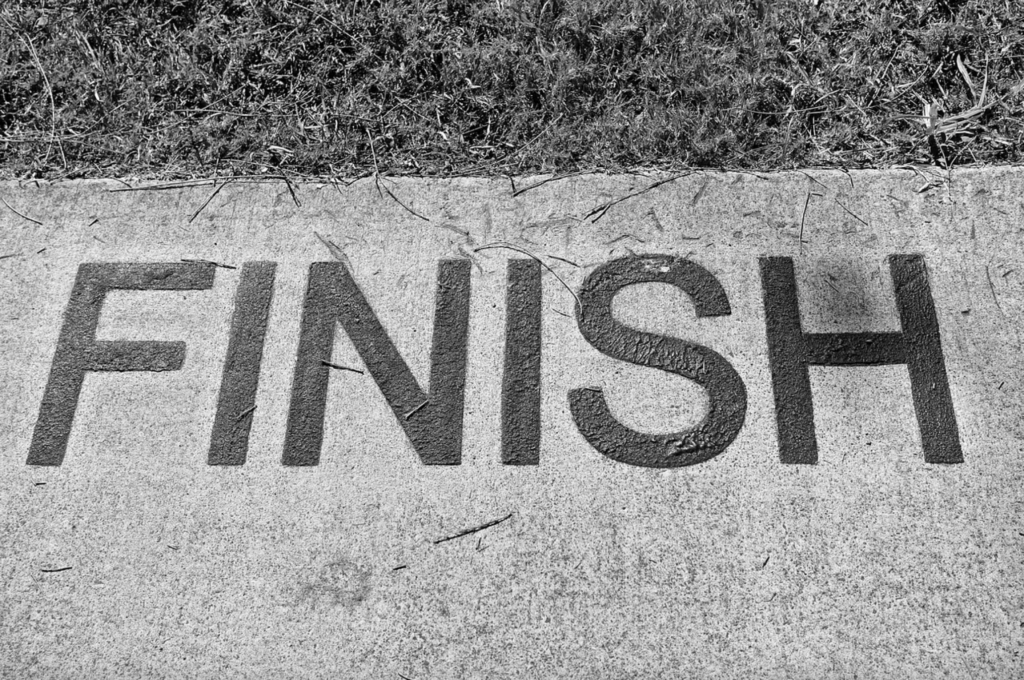
In August 2022, the UC Berkeley Library and Internet Archive were awarded a grant from the National Endowment for the Humanities (NEH) to study legal and ethical issues in cross-border text and data mining (TDM).
The project, entitled Legal Literacies for Text Data Mining – Cross-Border (“LLTDM-X”), supported research and analysis to address law and policy issues faced by U.S. digital humanities practitioners whose text data mining research and practice intersects with foreign-held or -licensed content, or involves international research collaborations.
LLTDM-X is now complete, resulting in the publication of an instructive case study for researchers and white paper. Both resources are explained in greater detail below.
Project Origins
LLTDM-X built upon the previous NEH-sponsored institute, Building Legal Literacies for Text Data Mining. That institute provided training, guidance, and strategies to digital humanities TDM researchers on navigating legal literacies for text data mining (including copyright, contracts, privacy, and ethics) within a U.S. context.
A common challenge highlighted during the institute was the fact that TDM practitioners encounter expanding and increasingly complex cross-border legal problems. These include situations in which: (i) the materials they want to mine are housed in a foreign jurisdiction, or are otherwise subject to foreign database licensing or laws; (ii) the human subjects they are studying or who created the underlying content reside in another country; or, (iii) the colleagues with whom they are collaborating reside abroad, yielding uncertainty about which country’s laws, agreements, and policies apply.
Project design
We designed LLTDM-X to identify and better understand the cross-border issues that digital humanities TDM practitioners face, with the aim of using these issues to inform prospective research and education. Secondarily, we hoped that LLTDM-X would also suggest preliminary guidance to include in future educational materials. In early 2023, we hosted a series of three online round tables with U.S.-based cross-border TDM practitioners and law and ethics experts from six countries.
The round table conversations were structured to illustrate the empirical issues that researchers face, and also for the practitioners to benefit from preliminary advice on legal and ethical challenges. Upon the completion of the round tables, the LLTDM-X project team created a hypothetical case study that (i) reflects the observed cross-border LLTDM issues and (ii) contains preliminary analysis to facilitate the development of future instructional materials.
We also charged the experts with providing responsive and tailored written feedback to the practitioners about how they might address specific cross-border issues relevant to each of their projects.
Guidance & Analysis
Case Study
Extrapolating from the issues analyzed in the round tables, the practitioners’ statements, and the experts’ written analyses, the Project Team developed a hypothetical case study reflective of “typical” cross-border LLTDM issues that U.S.-based practitioners encounter. The case study provides basic guidance to support U.S. researchers in navigating cross-border TDM issues, while also highlighting questions that would benefit from further research.
The case study examines cross-border copyright, contracts, and privacy & ethics variables across two distinct paradigms: first, a situation where U.S.-based researchers perform all TDM acts in the U.S., and second, a situation where U.S.-based researchers engage with collaborators abroad, or otherwise perform TDM acts in both U.S. and abroad.
White Paper
The LLTDM-X white paper provides a comprehensive description of the project, including origins and goals, contributors, activities, and outcomes. Of particular note are several project takeaways and recommendations, which we hope will help inform future research and action to support cross-border text data mining. Our project takeaways touched on seven key themes:
- Uncertainty about cross-border LLTDM issues indeed hinders U.S. TDM researchers, confirming the need for education about cross-border legal issues;
- The expansion of education regarding U.S. LLTDM literacies remains essential, and should continue in parallel to cross-border education;
- Disparities in national copyright, contracts, and privacy laws may incentivize TDM researcher “forum shopping” and exacerbate research bias;
- License agreements (and the concept of “contractual override”) often dominate the overall analysis of cross-border TDM permissibility;
- Emerging lawsuits about generative artificial intelligence may impact future understanding of fair use and other research exceptions;
- Research is needed into issues of foreign jurisdiction, likelihood of lawsuits in foreign countries, and likelihood of enforcement of foreign judgments in the U.S. However, the overall “risk” of proceeding with cross-border TDM research may remain difficult to quantify; and
- Institutional review boards (IRBs) have an opportunity to explore a new role or build partnerships to support researchers engaged in cross-border TDM.
Gratitude & Next Steps
Thank you to the practitioners, experts, project team, and generous funding of the National Endowment for the Humanities for making this project a success.
We aim to broadly share our project outputs to continue helping U.S.-based TDM researchers navigate cross-border LLTDM hurdles. We will continue to speak publicly to educate researchers and the TDM community regarding project takeaways, and to advocate for legal and ethical experts to undertake the essential research questions and begin developing much-needed educational materials. And, we will continue to encourage the integration of LLTDM literacies into digital humanities curricula, to facilitate both domestic and cross-border TDM research.
[Note: this content is cross-posted on the LLTDM blog.]
Workshop Reminder — Copyright and Your Dissertation on September 27, 2023
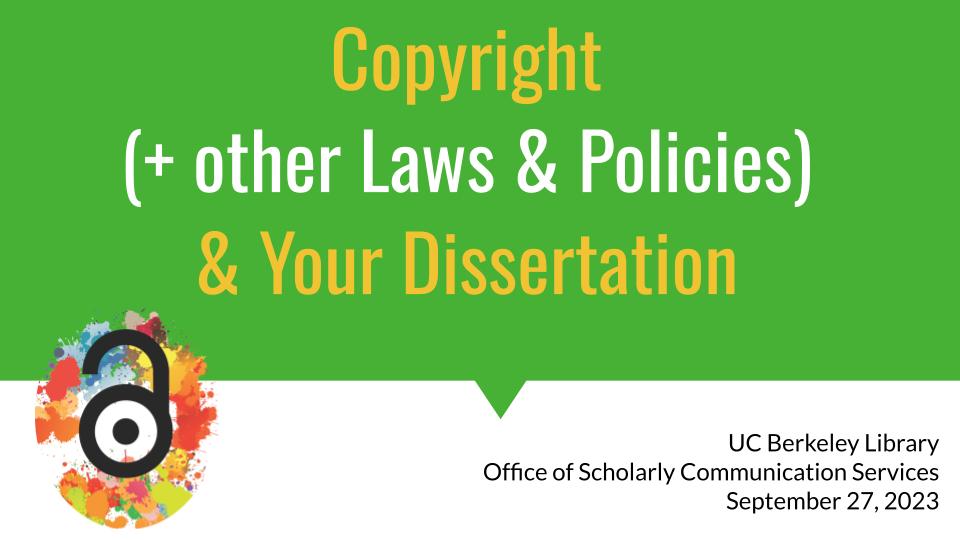
Date/Time: Wednesday, September 27, 2023, 11:00am–12:30pm
Location: Hybrid: Join in person at 223 Doe Library, or on Zoom. Register via LibCal.
This workshop will provide you with practical guidance for navigating copyright questions and other legal considerations for your dissertation or thesis. Whether you’re just starting to write or you’re getting ready to file, you can use our tips and workflow to figure out what you can use, what rights you have as an author, and what it means to share your dissertation online.
Some questions we’ll answer during the workshop include:
- What’s mine after I’m done writing my dissertation?
- Can I re-use previous scholarly articles I’ve written?
- Can I use content created by others? How?
- Where does my dissertation end up online? When?
Join us!
Fall 2023 copyright and publishing workshops with the Office of Scholarly Communication Services
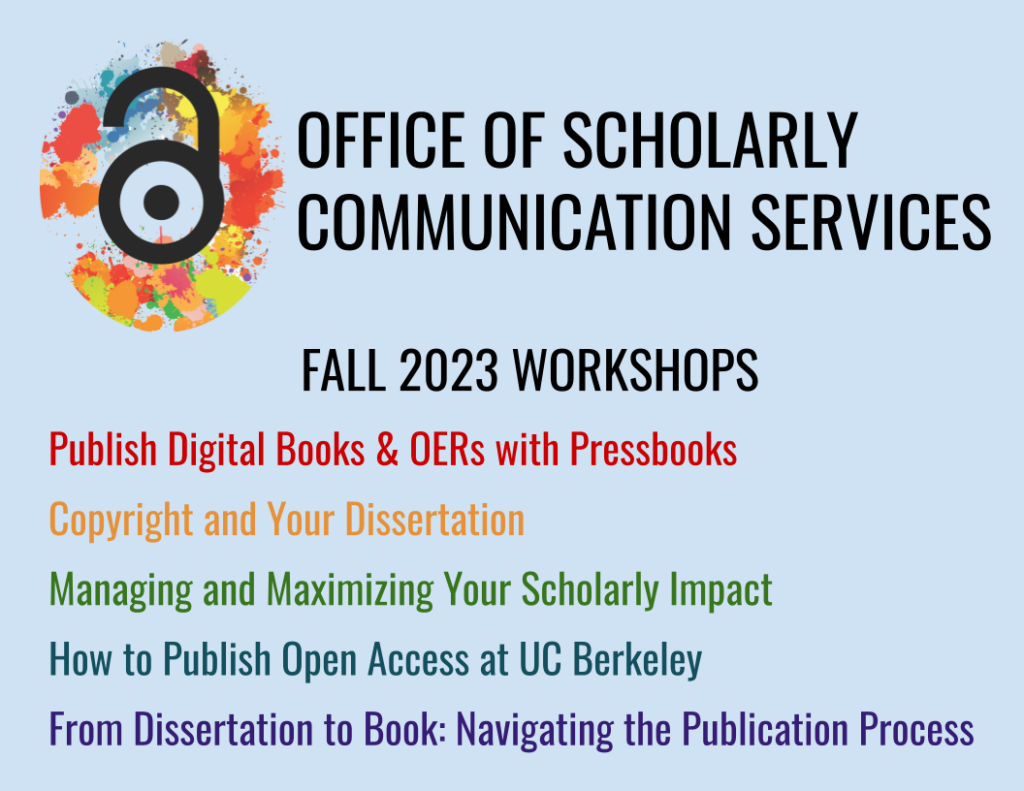
With the school year kicking off soon in Berkeley, the Library’s Office of Scholarly Communication Services is here to help UC Berkeley faculty, students, and staff understand copyright and scholarly publishing with online resources, Zoom and in-person workshops, and consultations. Here’s what’s coming up this semester.
Workshops
Publish Digital Books & Open Educational Resources with Pressbooks
Date/Time: Wednesday, September 20, 2023, 11:00am–12:30pm
Location: Zoom only. Register via LibCal.
If you’re looking to self-publish work of any length and want an easy-to-use tool that offers a high degree of customization, allows flexibility with publishing formats (EPUB, PDF), and provides web-hosting options, Pressbooks may be great for you. Pressbooks is often the tool of choice for academics creating digital books, open textbooks, and open educational resources, since you can license your materials for reuse however you desire. Learn why and how to use Pressbooks for publishing your original books or course materials. You’ll leave the workshop with a project already under way.
Copyright and Your Dissertation
Date/Time: Wednesday, September 27, 2023, 11:00am–12:30pm
Location: In-person in Doe Library Room 223, or Zoom. Register via LibCal.
This workshop will provide you with practical guidance for navigating copyright questions and other legal considerations for your dissertation or thesis. Whether you’re just starting to write or you’re getting ready to file, you can use our tips and workflow to figure out what you can use, what rights you have as an author, and what it means to share your dissertation online.
Managing and Maximizing Your Scholarly Impact
Date/Time: Tuesday, October 10, 2023, 11:00am–12:30pm
Location: In-person in Doe Library Room 223, or Zoom. Register via LibCal.
This workshop will provide you with practical strategies and tips for promoting your scholarship, increasing your citations, and monitoring your success. You’ll also learn how to understand metrics, use scholarly networking tools, and evaluate journals and publishing options.
How to Publish Open Access at UC Berkeley
Date/Time: Tuesday, October 17, 2023, 11:00am–12:30pm
Location: Zoom only. Register via LibCal.
Are you wondering what processes, platforms, and funding are available at UC Berkeley to publish your research open access (OA)? This workshop will provide practical guidance and walk you through all of the OA publishing options and funding sources you have on campus. We’ll explain: the difference between (and mechanisms for) self-depositing your research in the UC’s institutional repository vs. choosing publisher-provided OA; what funding is available to put toward your article or book charges if you choose a publisher-provided option; and the difference between funding coverage under the UC’s systemwide OA agreements vs. the Library’s funding program (Berkeley Research Impact Initiative). We’ll also give you practical tips and tricks to maximize your retention of rights and readership in the publishing process.
From Dissertation to Book: Navigating the Publication Process
Date/Time: Thursday, November 9, 2023, 11:00am–12:30pm
Location: Zoom only. Register via LibCal.
Hear from a panel of experts—an acquisitions editor, a first-time book author, and an author rights expert—about the process of turning your dissertation into a book. You’ll come away from this panel discussion with practical advice about revising your dissertation, writing a book proposal, approaching editors, signing your first contract, and navigating the peer review and publication process.
Other ways we can help
In addition to the workshops, we’re here to help answer a variety of questions you might have on intellectual property, digital publishing, and information policy.
- Check out our website for information on issues such as copyright and fair use, text data mining, and how to participate in UC’s Open Access Policy.
- Interested in publishing your research Open Access? UCB Library can help defray the costs of an article processing charge (up to $2,500) or book processing charge (up to $10,000). See the Berkeley Research Impact Initiative (BRII) for more information. And explore the various UC-wide open access agreements and discounts that can help UC corresponding authors publish their scholarship open access.
- Do you want to create an open digital textbook? Take a look at UC Berkeley’s Open Book Publishing platform (anyone with a @berkeley.edu email can sign up for a free account), and get in touch with us about our Open Educational Resources (OER) grant program.
- Keep an eye on the Library’s events calendar for more workshops and trainings.
- Follow our blog, social media, and YouTube channel.
Want help or more information? Send us an email. We can provide individualized support and personal consultations, online class instruction, presentations and workshops for small or large groups & classes, and customized support and training for departments and disciplines.
Upcoming Workshop: Can I Mine That? Should I Mine That? A Clinic for Copyright, Ethics & More in TDM Research
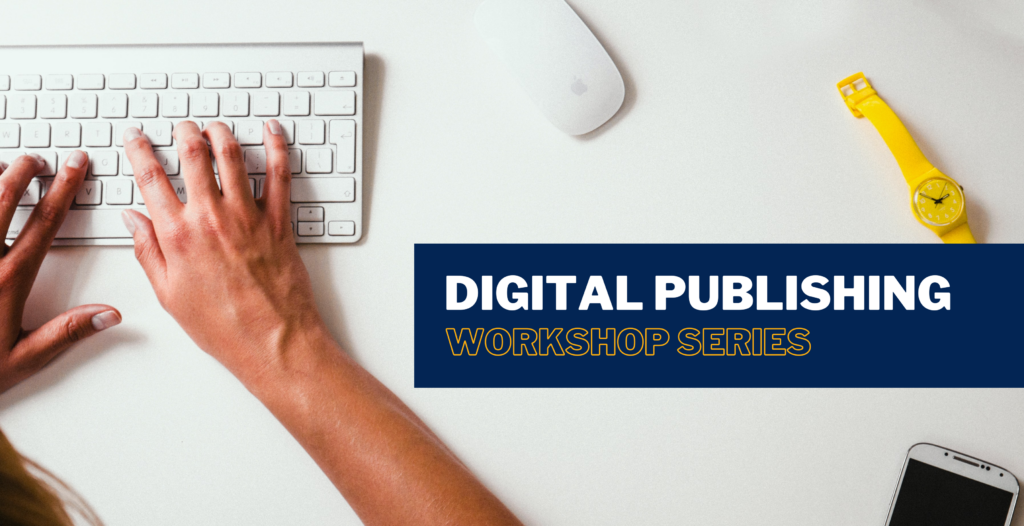
Workshop Date/Time: Wednesday, March 8, 2023, 11:00am–12:30pm
Register to receive Zoom link
If you are working on a computational text analysis project and have wondered how to legally acquire, use, and publish text and data, this workshop is for you! We will teach you 5 legal literacies (copyright, contracts, privacy, ethics, and special use cases) that will empower you to make well-informed decisions about compiling, using, and sharing your corpus. By the end of this workshop, and with a useful checklist in hand, you will be able to confidently design lawful text analysis projects or be well positioned to help others design such projects. Consider taking alongside Copyright and Fair Use for Digital Projects.
Please sign up today and join us online on March 8.
Workshop Reminder—Copyright & Fair Use for Digital Projects
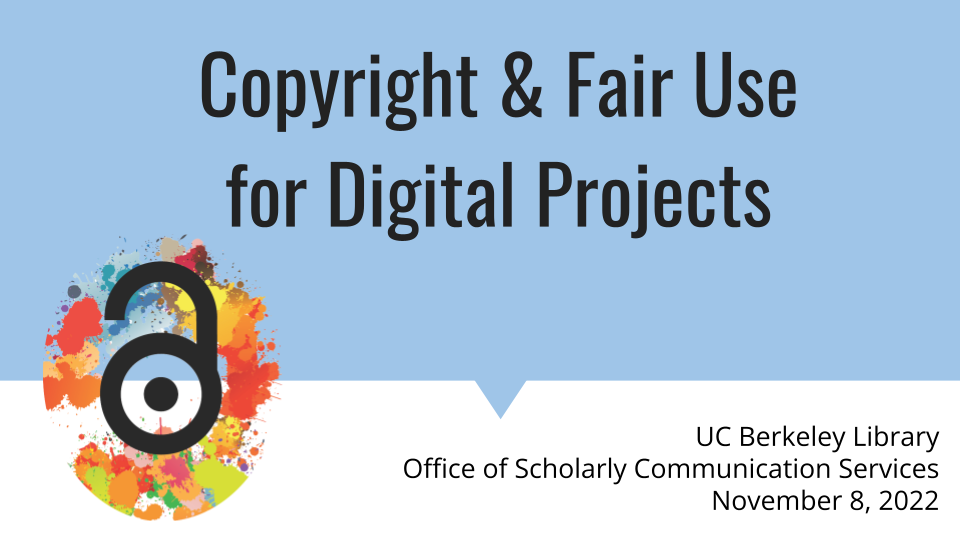
Workshop Date/Time: Tuesday, November 8, 2022, 11:00am–12:30pm
RSVP for Zoom link
Please sign up today and join us on November 8.
Workshop Reminder—How to Publish Open Access at UC Berkeley
Workshop Date/Time: Tuesday, October 25, 2022, 11:00am–12:30pm
RSVP for Zoom link
Please sign up today and join us on October 25.
Fall 2022 copyright and publishing workshops with the Office of Scholarly Communication Services

With the school year kicking off this week in Berkeley, the Office of Scholarly Communication Services is here to help UC Berkeley faculty, students, and staff understand copyright and scholarly publishing with online resources, Zoom workshops, and consultations.
Here’s what’s coming up this semester.
Workshops
Publish Digital Books & Open Educational Resources with Pressbooks
Date/Time: Tuesday, September 20, 2022, 11:00am–12:30pm
RSVP for Zoom link
If you’re looking to self-publish work of any length and want an easy-to-use tool that offers a high degree of customization, allows flexibility with publishing formats (EPUB, PDF), and provides web-hosting options, Pressbooks may be great for you. Pressbooks is often the tool of choice for academics creating digital books, open textbooks, and open educational resources, since you can license your materials for reuse however you desire. Learn why and how to use Pressbooks for publishing your original books or course materials. You’ll leave the workshop with a project already under way.
Copyright and Your Dissertation
Date/Time: Tuesday, September 27, 2022, 11:00am–12:30pm
RSVP for Zoom link
This workshop will provide you with practical guidance for navigating copyright questions and other legal considerations for your dissertation or thesis. Whether you’re just starting to write or you’re getting ready to file, you can use our tips and workflow to figure out what you can use, what rights you have as an author, and what it means to share your dissertation online.
Managing and Maximizing Your Scholarly Impact
Date/Time: Tuesday, October 11, 2022, 11:00am–12:30pm
RSVP for Zoom link
This workshop will provide you with practical strategies and tips for promoting your scholarship, increasing your citations, and monitoring your success. You’ll also learn how to understand metrics, use scholarly networking tools, evaluate journals and publishing options, and take advantage of funding opportunities for Open Access scholarship.
From Dissertation to Book: Navigating the Publication Process
Date/Time: Tuesday, October 18, 2022, 11:00am–12:30pm
RSVP for Zoom link
Hear from a panel of experts—an acquisitions editor, a first-time book author, and an author rights expert—about the process of turning your dissertation into a book. You’ll come away from this panel discussion with practical advice about revising your dissertation, writing a book proposal, approaching editors, signing your first contract, and navigating the peer review and publication process.
How to Publish Open Access at UC Berkeley
Date/Time: Tuesday, October 25, 2022, 11:00am–12:30pm
RSVP for Zoom link
Are you wondering what processes, platforms, and funding are available at UC Berkeley to publish your research open access (OA)? This workshop will provide practical guidance and walk you through all of the OA publishing options and funding sources you have on campus. We’ll explain: the difference between (and mechanisms for) self-depositing your research in the UC’s institutional repository vs. choosing publisher-provided OA; what funding is available to put toward your article or book charges if you choose a publisher-provided option; and the difference between funding coverage under the UC’s “transformative agreements” vs. the Library’s funding program (Berkeley Research Impact Initiative). We’ll also give you practical tips and tricks to maximize your retention of rights and readership in the publishing process.
Copyright and Fair Use for Digital Projects
Date/Time: Tuesday, November 8, 2022, 11:00am–12:30pm
RSVP for Zoom link
This training will help you navigate the copyright, fair use, and usage rights of including third-party content in your digital project. Whether you seek to embed video from other sources for analysis, post material you scanned from a visit to the archives, add images, upload documents, or more, understanding the basics of copyright and discovering a workflow for answering copyright-related digital scholarship questions will make you more confident in your project. We will also provide an overview of your intellectual property rights as a creator and ways to license your own work.
Other ways we can help
In addition to the workshops, we’re here to help answer a variety of questions you might have on intellectual property, digital publishing, and information policy.
- Check out our website for information on issues such as copyright and fair use, text data mining, and how to participate in UC’s Open Access Policy.
- Interested in publishing your research Open Access? UCB Library can help defray the costs of an article processing charge (up to $2,500) or book processing charge (up to $10,000). See the Berkeley Research Impact Initiative (BRII) for more information. And explore the various UC-wide transformative open access agreements and discounts that can help UC corresponding authors publish their scholarship open access.
- Do you want to create an open digital textbook? Take a look at UC Berkeley’s Open Book Publishing platform (anyone with a @berkeley.edu email can sign up for a free account), and get in touch with us about our Open Educational Resources (OER) grant program.
- Keep an eye on our events calendar for more workshops and trainings.
- Follow our blog, social media, and YouTube channel.
Want help or more information? Send us an email. We can provide individualized support and personal consultations, online class instruction, presentations and workshops for small or large groups & classes, and customized support and training for departments and disciplines.
Making it easier to reuse and share Thérèse Bonney photography
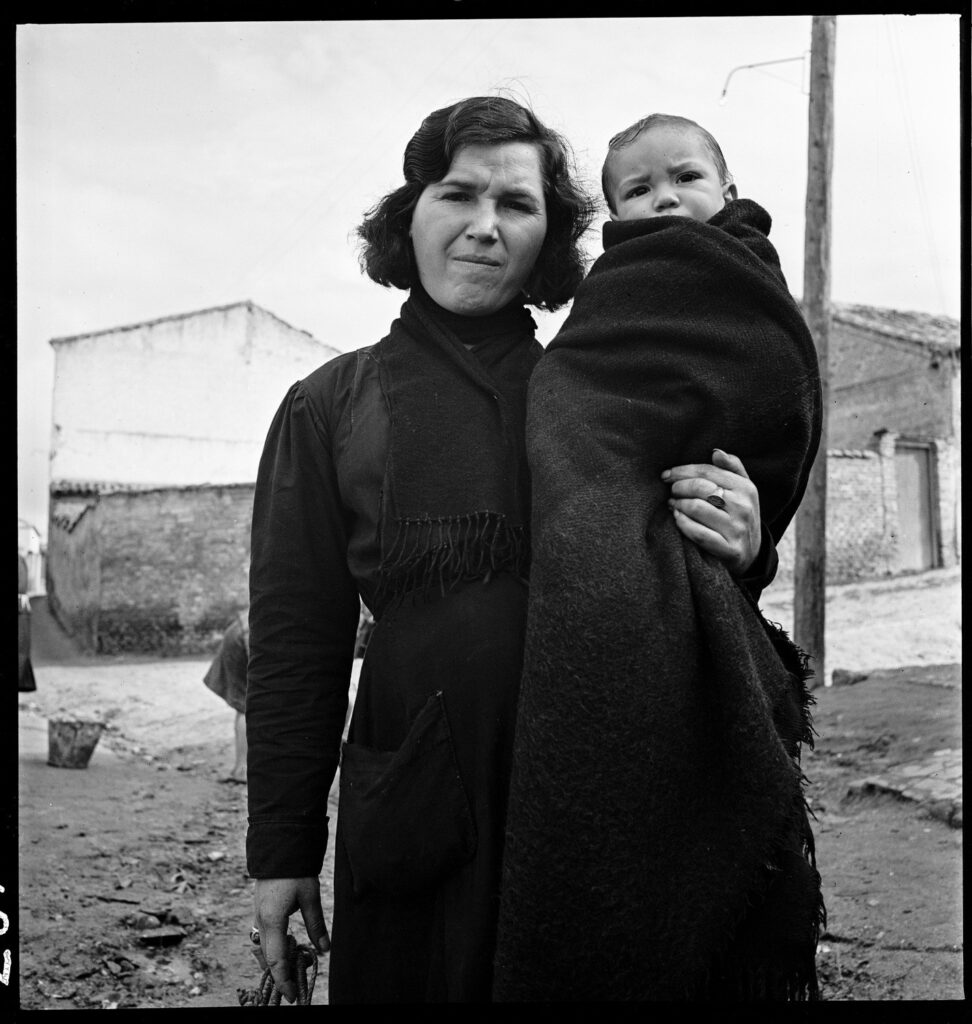
BANC PIC 1982.111.03.0287–NNEG
Thérèse Bonney, © The Regents of the University of California, The Bancroft Library, University of California, Berkeley. This work is made available under a Creative Commons Attribution 4.0 license.
As part of UC Berkeley Library’s trend-setting efforts to make all our collections easier to use, reuse, and publish from, we are excited to announce that:
We’ve just eliminated hurdles to the reuse of renowned photographer Thérèse Bonney’s photographs. Every photograph ever taken by Bonney is licensed under a Creative Commons Attribution 4.0 license (CC BY 4.0). This means anyone around the world can incorporate Bonney’s photos into papers, projects, and productions—even commercial ones—without ever getting further permission or another license from us.
Thérèse Bonney Copyright
Thérèse Bonney (1894-1978) was a documentary photographer and war correspondent. She concentrated much of her work on documenting conditions in Europe during World War II. Prior to her work as a war correspondent, Bonney extensively photographed French architecture and design, as well as writers and artists such as Joan Miró, Fernand Léger, and Gertrude Stein. Her photographs have been exhibited at the Museum of Modern Art, the Library of Congress, and Carnegie Hall.
Bonney transferred copyright to all of her work to the UC Regents to be managed by UC Berkeley Library. This includes Bonney materials at the UC Berkeley Library and any Bonney-authored or Bonney-created materials held by other institutions.
Although people did not previously need the UC Regents’ permission (sometimes called a “license”) to make fair uses of Bonney’s because of the progressive permissions policy we created, prior to July 2022 people did need a license to reuse Bonney’s works if their intended use exceeded fair use. As a result, hundreds of book publishers, journals, and film-makers sought licenses from the Library each year to publish Bonney’s photos.
The UC Berkeley Library recognized this as an unnecessary barrier for research and scholarship, and has now exercised its authority on behalf of the UC Regents to freely license Bonney’s entire corpus under CC-BY. This license is designed for maximum dissemination and use of the materials.
How to use Bonney’s works going forward
Now that all Bonney photographs have a CC-BY license applied to them, no additional permission or license from the UC Regents or anyone else is needed to use Bonney’s work, even if you are using the work for commercial purposes. No fees will be charged, and no paperwork is necessary.
The CC-BY license does require attribution to the copyright owner, which in this case is the UC Regents. The Library suggests the following attribution:
Thérèse Bonney, © The Regents of the University of California, The Bancroft Library, University of California, Berkeley. This work is made available under a Creative Commons Attribution 4.0 license.
What’s ahead for the Library
The Library now has some work to do to make our catalog and other information sources about the Bonney photos reflect this application of the CC-BY licenses. This means we have to update things like the Bonney collection finding aid and the metadata for individual photos in the digital versions of the Bonney photos that we make available online. In the meantime, you can rely on written confirmation that we’ve applied the CC-BY license by consulting the Easy to Use Collections page of our permissions guide.
In the coming year, we hope to add many more collections to that Easy to Use Collections page, too. We’ll be spending some time reviewing materials for which the UC Regents own copyright, and seeing what we can “open up” with other CC BY licenses. Stay tuned.
— — — — —
This post was written by the Library’s Office of Scholarly Communication Services.
